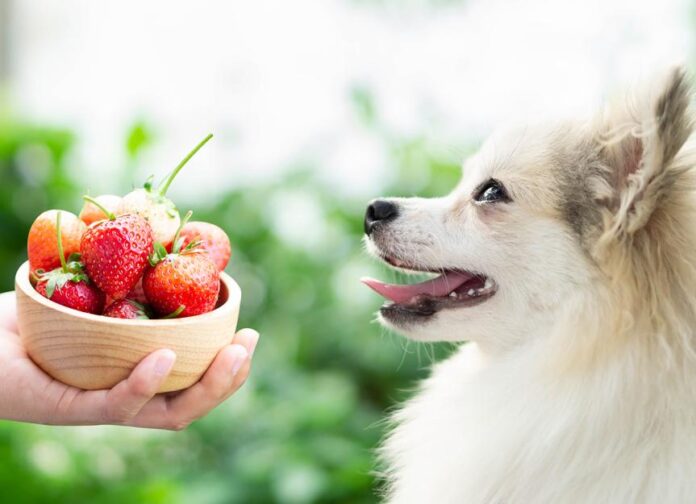Can Dogs Eat Fruit? A Comprehensive Guide to Fruit Safety
Before introducing any new foods to your dog’s diet, it’s vital to consult your veterinarian. Each dog is unique, and what works for one may not work for another. This is particularly important for dogs on specialized diets. In this article, we’ll explore whether dogs can eat fruit, which fruits are safe, and which should be avoided.
Key Takeaways
- Many fruits are safe for dogs, but others can be harmful.
- Always wash fruit and remove any non-edible parts before feeding.
- Consult your veterinarian to ensure that fruit is appropriate for your dog’s health needs.
Understanding Your Dog’s Dietary Needs
Dogs are omnivorous, which means they can consume both animal and plant-based foods. While fruits can be a delightful treat, they are not a strict necessity if your dog is already consuming a complete and balanced dog food. Treats, including fruits, should constitute no more than 10% of a dog’s daily caloric intake.
Safe Fruits for Dogs
Here’s a list of fruits that are generally safe for dogs, along with their health benefits:
1. Apples
Apples are low-calorie and packed with vitamins A and C, fiber, potassium, and antioxidants. Be sure to remove the seeds and core before feeding your dog.
2. Avocados
Avocados contain healthy fats, vitamins B6, C, and E. Only the soft flesh should be given to dogs as the pit and skin are toxic.
3. Bananas
Bananas are rich in potassium and vitamins but should be given in moderation due to their high sugar content. Avoid offering the peel.
4. Blackberries
These berries are full of antioxidants and can be a great snack in moderation, but be cautious as they contain small amounts of xylitol, which is toxic to dogs in larger quantities.
5. Blueberries
Blueberries are low in calories and high in vitamins and antioxidants. They make a perfect healthful treat.
6. Cantaloupe
This fruit is great for hydration and packed with vitamins A and C. Monitor sugar intake, especially for overweight dogs.
7. Cranberries
Cranberries are high in fiber but can be tart. Look for dog treats that incorporate cranberries to avoid the sour taste.
8. Oranges
Oranges are a good source of vitamin C. They should be offered in moderation due to the sugar and acidity that may upset your dog’s stomach.
9. Peaches
Fresh peaches can provide fiber and antioxidants; just ensure to remove the pit.
10. Watermelon
Watermelon is refreshing and hydrating, making it a fantastic summer treat. Ensure that the seeds and rind are removed.
Fruits to Avoid
While many fruits are safe, there are several that can be harmful to dogs:
1. Grapes and Raisins
These are highly toxic and can lead to kidney failure in dogs. Signs of toxicity include vomiting and lethargy. If ingested, contact your veterinarian immediately.
2. Lemons and Limes
The high citric acid content can irritate the digestive system of dogs. Avoid giving these fruits altogether.
3. Cherries
Cherry pits contain cyanide and can be hazardous. Only the flesh should be given, and always remove the pit and stem.
Preparing and Serving Fruits to Dogs
To safely introduce fruit to your dog’s diet, follow these guidelines:
- Fresh Fruit: Always opt for fresh fruit. Canned or processed fruit often contains added sugars.
- Wash Thoroughly: Clean fruits under cool running water before serving.
- Remove Non-Edible Parts: Ensure that all seeds, pits, and skins are removed to prevent choking or digestive issues.
- Cut into Small Pieces: Offer fruit in bite-sized pieces to prevent choking hazards.
How Much Fruit Can Your Dog Have?
As mentioned, treats should make up no more than 10% of your dog’s daily caloric intake. The specific amount varies depending on your dog’s size and health, so consult your veterinarian for tailored advice.
What to Do If Your Dog Eats Too Much Fruit
Excessive intake of fruit can lead to digestive upset. Look for symptoms such as:
- Vomiting
- Diarrhea
- Restlessness or pacing, which may indicate discomfort
- Drooling or decreased appetite
- Lethargy
If you observe any of these symptoms, monitor your dog closely and consult your veterinarian if symptoms persist or worsen.
FAQs About Dogs and Fruit
Can dogs eat packaged fruit snacks?
No, packaged fruit snacks are often high in sugar and should be avoided.
Can dogs eat dried fruit?
No, dried fruit has a higher sugar concentration, making it easier for dogs to overindulge.
Can dogs eat frozen fruit?
Yes, provided that the frozen fruit does not contain added sugars. Thawing may make it easier for dogs to eat.
What’s the best fruit for dogs?
Some of the best fruits include apples, blueberries, strawberries, and watermelon, thanks to their nutrient content.
By following these guidelines and consulting your veterinarian, you can safely treat your dog to delicious and nutritious fruit! Always prioritize your pet’s health and well-being by making informed choices.











